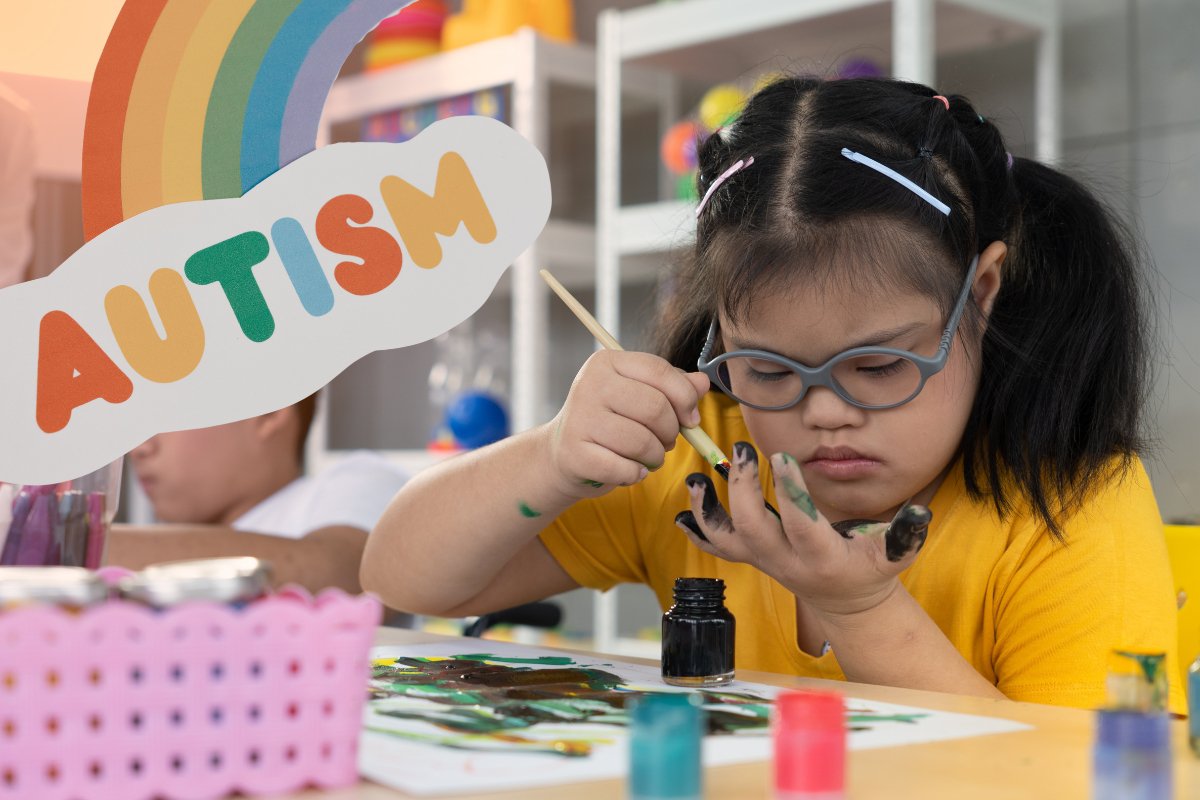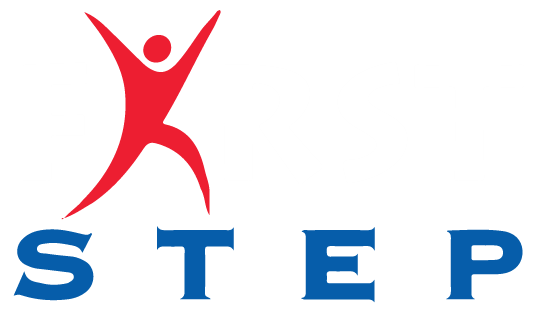Feeling overwhelmed after receiving your child’s autism spectrum disorder (ASD) diagnosis? You’re not alone. ASD can be a complex maze of information, but there’s hope and support available.
This guide will equip you with the knowledge you need to navigate this journey. We’ll break down the essentials of ASD, answer common questions, and point you towards resources to empower your child and family.
Feeling lost in a sea of medical jargon? Don't worry, we're here to help! We'll break down complex terms into simple language and guide you towards valuable resources. Uncertain about the next steps? Consider early intervention services from First Step. Finally, let's work together to support your child's journey and build a brighter future.
What is Autism Spectrum Disorder (ASD)?
ASD is a developmental disorder characterized by challenges in social interaction, communication, and repetitive behaviors. It affects individuals differently, with a spectrum of severity and symptoms.
Seeking Support Through Early Intervention
Early intervention is crucial for children with an Autism spectrum diagnosis. First Step offers a program designed to help young children (birth to age 3) with developmental delays or disabilities reach their full potential.
What is Early Intervention at First Step?
- Referral: Contact your pediatrician or First Step directly for an evaluation.
- Evaluation: Specialists in speech, occupational therapy, and physical therapy will assess your child's needs.
- Intake Conference: Discuss the results and determine if your child qualifies for services.
- Treatment Plan: A personalized plan is developed based on your child's specific needs.
- Start Date: Schedule services to begin your child's journey towards success.
Why is Early Intervention Important?
Research shows early intervention can significantly improve:
- Communication and language skills
- Social and emotional development
- Cognitive abilities
- Physical development
Empowering Your Child's Future
An Autism spectrum diagnosis can be daunting, but with the right support, your child can thrive. First Step and our free ASD Guide can be your partners in this journey. Don't hesitate to reach out! Contact First Step today to learn more about our early intervention program and how we can help your child reach their full potential.Together, we can make a difference.
Understanding Autism Spectrum Disorder (ASD)
What Is ASD?
ASD is a range of developmental conditions characterized by challenges in social interaction, communication, and repetitive behaviors. Consequently, it affects individuals differently, with a spectrum of severity and symptoms.
What are the Main Types of ASD?
There are five main types:
- Asperger's syndrome: A level 1 autism characterized by challenges in social communication, inflexible thinking, managing tasks, and interacting with others.
- Rett syndrome: Primarily affects girls and leads to loss of coordination, speech difficulties, and problems with breathing.
- Childhood disintegrative disorder (CDD): Typically impacts boys and can cause delayed development and loss of skills in language and social function.
- Kanner's syndrome: Also known as infantile autism, it is characterized by difficulties with emotional connections and communication.
- Pervasive Developmental Disorder – Not Otherwise Specified (PDD-NOS): A mild form of ASD with symptoms spanning social and language development issues.
What Distinguishes One Type of ASD from Another?
Each type of ASD has unique signs and symptoms. For example, individuals with Asperger's syndrome may struggle with social communication and inflexible thinking, while those with Rett syndrome may experience physical challenges.
What is the Role of an Autism Spectrum Diagnosis?
Knowing the type of Autism spectrum diagnosis is crucial for understanding and addressing the unique challenges associated with each individual's condition. A diagnosis can help guide the development of appropriate strategies, such as behavior therapy, social training, physical therapy, or dietary changes.
Symptoms and Causes of Autism Spectrum Disorder
ASD can manifest differently in different individuals, but there are some common symptoms and potential causes.
What Symptoms Do Children with ASD Typically Present?
Children with ASD may exhibit:
- Social interaction challenges: Difficulty responding to their name, avoiding eye contact, problems understanding feelings, or seeming to live in their own world.
- Repetitive behaviors: Flapping hands, rocking back and forth, lining up toys, or becoming upset when routines change.
How Do the Symptoms of ASD Differ in Adults?
In adults, the symptoms of ASD may be less obvious as they often learn to mask their difficulties. However, they may still struggle with social cues, prefer solitude, or have difficulty with planning or organization.
Are there Identifiable Causes of ASD?
The exact cause of ASD remains unknown. However, research suggests that it is likely a combination of genetic and environmental factors.
- Genetic factors: Family history of ASD may indicate a genetic predisposition.
- Environmental factors: Some research explores the potential role of certain medications, premature birth, or other factors during pregnancy.
Diagnosis and Treatment of Autism Spectrum Disorder
ASD is typically diagnosed through a combination of medical exams and behavioral assessments. Once a diagnosis is made, a personalized treatment plan can be developed.
How do Diagnostic Tests for ASD Work?
Diagnostic tests for ASD involve evaluating a person's behavioral patterns and identifying persistent difficulties in communication, social interactions, or rigid routines and interests.
What are the most effective therapies for ASD?
Therapies for an Autism spectrum diagnosis vary and are tailored to individual needs. As a result, they may include:
- Behavior therapy: To improve communication, social interactions, and problem-solving skills.
- Speech therapy: To address communication challenges.
- Occupational therapy: To develop daily living skills.
- Medication: In some cases, medication may be used to manage certain symptoms.
Common Treatment Plans for Individuals with ASD
A comprehensive treatment plan for an Autism spectrum diagnosis often involves a team of experts and a combination of therapies. In fact, the goal is to help individuals with ASD develop life skills, manage symptoms, and improve their quality of life.
Support and Resources for Autism Spectrum Disorder
There are many resources available to support individuals with ASD and their families.
Education System Support
Schools can play a significant role in supporting children with ASD. They do this by providing specialized classes, trained teachers, and accommodations to meet their unique needs.
Specialized Care
Specialized care for ASD may include:
- Therapies: Speech therapy, occupational therapy, or physical therapy can help build life skills, manage symptoms, and boost self-esteem.
- Support groups: Connecting with other families facing similar challenges can provide emotional support and practical advice. In fact, support groups offer a safe space to share experiences, exchange tips, and receive emotional support from others who understand the challenges of living with ASD.
ASD and Daily Life
ASD can impact daily life in various ways, from challenges with simple tasks to navigating social situations.
Everyday Living Impact
Individuals with ASD may face difficulties with tasks like brushing teeth, tying shoes, or enjoying family meals. However, the impact of ASD varies greatly, and some individuals may be able to manage these challenges with support or creative solutions.
Societal Misconceptions
There are many misconceptions about ASD, including the belief that individuals with ASD cannot love, empathize, or form relationships. It's important to remember that people with ASD feel deeply and cherish their bonds, even if they express them differently.
ASD and Transitioning into Adulthood
As individuals with ASD transition into adulthood, they may face challenges such as job interviews, budgeting, and living independently. With the right support, like what can be found with First Step, they can thrive and lead fulfilling lives.
Advances in Autism Spectrum Disorder Research
Yes, there are ongoing advances in ASD research, with new studies being conducted regularly.
Recent ASD Research and Developments
Recent developments in ASD research include:
- Genetic research: Scientists are studying family groups to identify genetic factors that contribute to ASD.
- Tailored treatments: Treatment approaches are becoming more personalized to address the unique needs of each individual with ASD.
- New diagnostic methods: Researchers are exploring new ways to diagnose ASD earlier, which can lead to earlier interventions.
Evolution of Treatments and Interventions
Treatments and interventions for ASD have become more tailored to individual needs. Therefore, they focus on behavior therapy, social training, and other personalized approaches.
Recent advancements in research are exploring innovative methods to diagnose autism spectrum disorder (ASD) earlier, enabling earlier intervention and support.
First Step's Free ASD Guide: Your Comprehensive Resource
Feeling lost in a sea of information?
First Step's free ASD Guide is your one-stop shop for understanding ASD. It delves deeper into the different types, explores Autism Spectrum diagnosis procedures, and explains treatment options. It's a valuable tool to have by your side!
Download First Step's Free ASD Guide Here
Ready to take the next step?
Schedule a consultation with First Step today to discuss your child's specific needs and learn more about how our early intervention program can help. Our experienced team is dedicated to providing the support and resources your family deserves.
Contact First Step Today
Don't wait. Let's work together to create a brighter future for your child.


